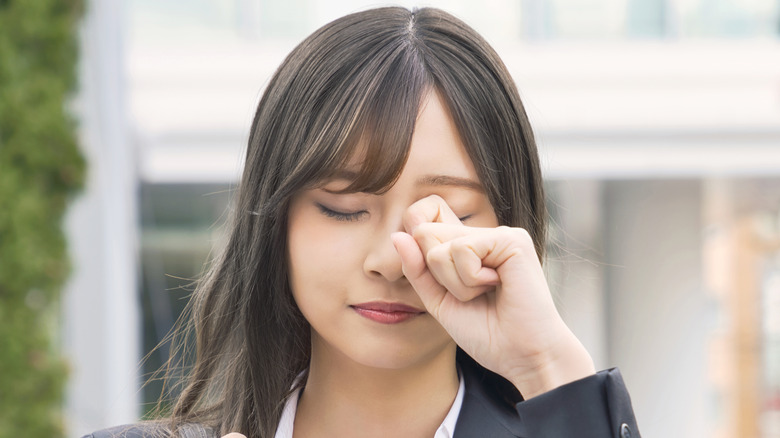Conjunctivitis, blepharitis, allergies, and sleep deprivation are all common causes of red eyes.
If you’re skimping on sleep, you might wake up withbloodshot eyes.
Eye redness usually subsides within hours or days, but this doesn’t mean you should ignore it.

Treatment depends on what other symptoms you have.
Most conditions affecting the eye have similar symptoms, explains Dr. Hwang.
For this reason, it’s important to contact your healthcare provider sooner rather than later.

This eye disease will eventually clear on its own, but you risk infecting other people.
The AAO recommends seeking medical health if your symptoms last longer than one or two weeks.
Meanwhile, avoid sharing your towels and makeup products.

Refrain fromtouching your eyesand wash your hands as often as you’re able to.
This condition is chronic, but it usually doesn’t affect eyesight.
Another potential cause of red eye is trachoma, a chronic infectious disease that may lead to blindness.

The infection is highly contagious and can easily spread in crowded places.
Sometimes, eye redness is due to acute or chronic uveitis.
This disease causes inflammation in the middle layer of the eye and may result in vision loss.
Allergic reactions can range from mild to severe and may occur seasonally or year-round.
Eye allergiesshare many of the same symptoms as conjunctivitis and other diseases.
In severe cases, they may affect your vision and lead to infection.
Generally, artificial tears and decongestants only provide temporary relief, says the ACAAI.
Small things, such as limiting screen time and getting regular eye exams, can make all the difference.